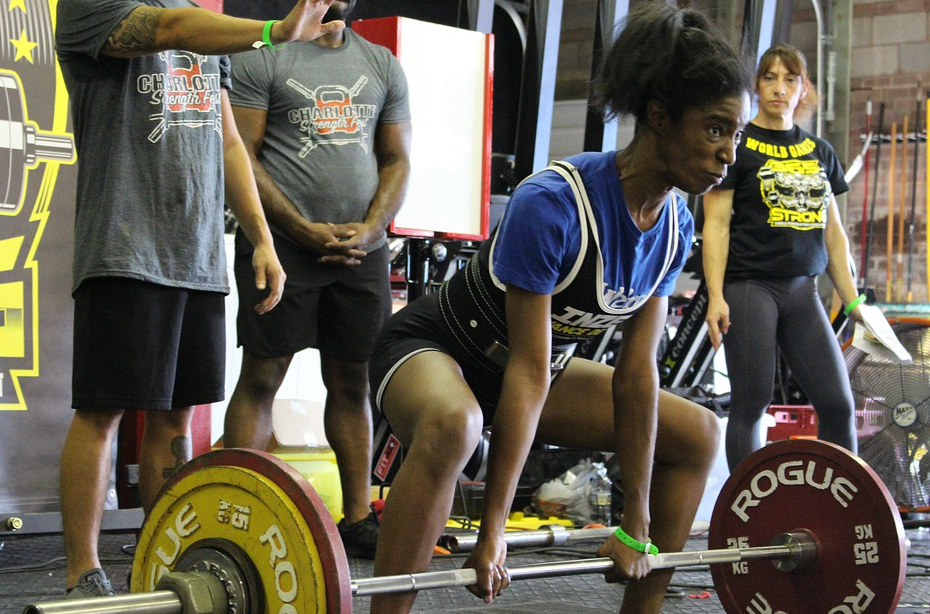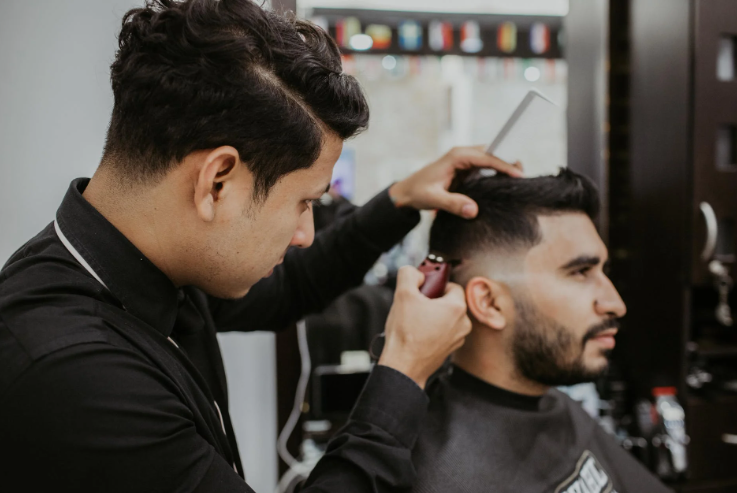A powerful morning doesn’t happen by accident—it’s constructed through deliberate choices that prepare your mind for sharper thinking. In an age where people face constant pressure to stay productive, many are searching for helpful insights that make their days feel less chaotic and more intentional. Morning rituals play a surprising yet influential role in shaping how your brain performs throughout the day. Whether you struggle with concentration, mental fatigue, or a wandering mind, a few well-crafted habits can transform your mornings from sluggish to purposeful. By setting a consistent flow that supports mental clarity, you give your brain the structure it needs to function with steadier energy, improved attention, and a more grounded mindset.
Start With Gentle Movement to Wake Up the Mind
Your brain responds quickly to physical motion. Light stretching, a short walk, or even controlled breathing can help increase oxygen circulation and spark mental alertness. Instead of forcing intense workouts the moment you rise, choosing calmer activity can bring your mind to life without overwhelming your body. The aim isn’t athletic performance; it’s stimulating communication between your muscles and your brain. Even five minutes can make a visible difference in how centered and attentive you feel afterward. By building this into your morning sequence, you uplift your mental readiness in a gradual but effective way, giving your brain the chance to adjust into a more active state.
Engage in a Simple Mindfulness Practice
 A brief mindfulness session can clear mental clutter before it steals your focus for …
A brief mindfulness session can clear mental clutter before it steals your focus for …






 Counseling plays a vital role in enhancing mental well-being for individuals using mobility aids. It creates a safe space where patients can express their feelings, …
Counseling plays a vital role in enhancing mental well-being for individuals using mobility aids. It creates a safe space where patients can express their feelings, …


 Yogic philosophy also teaches the principle of ahimsa or non-violence. This includes not only how …
Yogic philosophy also teaches the principle of ahimsa or non-violence. This includes not only how …


 One of the most important things you can do for your health is to eat a healthy diet. It means eating plenty of fruits, vegetables, whole grains, and lean protein. It also means avoiding sugary drinks and processed foods.
One of the most important things you can do for your health is to eat a healthy diet. It means eating plenty of fruits, vegetables, whole grains, and lean protein. It also means avoiding sugary drinks and processed foods. When you are studying for exams, it is essential to take breaks. Studying for long periods can be tiring and stressful. …
When you are studying for exams, it is essential to take breaks. Studying for long periods can be tiring and stressful. …



 With the assistance of this, the individual can control more. They don’t worry and practice the remedy for phobias and anxieties. It’s possible to find better VR expertise and expose the treatment to the digital environment. It’s secure for each individual, and the health care industry manages anything for them. It’s possible to experience some advantages during exposure treatment. It’s a much better method for treating soldiers in the VR mode.
With the assistance of this, the individual can control more. They don’t worry and practice the remedy for phobias and anxieties. It’s possible to find better VR expertise and expose the treatment to the digital environment. It’s secure for each individual, and the health care industry manages anything for them. It’s possible to experience some advantages during exposure treatment. It’s a much better method for treating soldiers in the VR mode.

 Chances are you’ve already done all of the above. But according to Ansel, detoxing is not essential. In addition to depriving your body of the nutrients it needs, detoxes promote the unhealthy mindset that you can eat and drink as much …
Chances are you’ve already done all of the above. But according to Ansel, detoxing is not essential. In addition to depriving your body of the nutrients it needs, detoxes promote the unhealthy mindset that you can eat and drink as much …

 Many struggles with losing weight. According to
Many struggles with losing weight. According to 
 Take care of yourself, starting with these simple tips. You may visit
Take care of yourself, starting with these simple tips. You may visit 
 At Breathe Salt Rooms, just pure salt vapor is discharged into the atmosphere. These attributes create salt an effective way of relieving several respiratory problems like blockage out of eczema or mucus from a cold virus. Individuals suffering from inflammatory skin conditions like psoriasis and eczema may benefit from the treatment, also. “The salt serves as an anti-inflammatory and quite a gentle defoliant so that it help slough off the dead skin so that the brand new cured skin may emerge.”
At Breathe Salt Rooms, just pure salt vapor is discharged into the atmosphere. These attributes create salt an effective way of relieving several respiratory problems like blockage out of eczema or mucus from a cold virus. Individuals suffering from inflammatory skin conditions like psoriasis and eczema may benefit from the treatment, also. “The salt serves as an anti-inflammatory and quite a gentle defoliant so that it help slough off the dead skin so that the brand new cured skin may emerge.”

 Side effects and complications can be severe after the process of liposuction. Due to the nature of the procedure, swelling, pain, and discoloration are common side effects. Under general anesthesia, the diarrhea rate for anesthesia is about one in 5,000 patients. Water-assisted anesthesia reduces swelling, pain, and …
Side effects and complications can be severe after the process of liposuction. Due to the nature of the procedure, swelling, pain, and discoloration are common side effects. Under general anesthesia, the diarrhea rate for anesthesia is about one in 5,000 patients. Water-assisted anesthesia reduces swelling, pain, and …

 Maintaining a healthy weight can also help delay the start of diabetes and keep your blood pressure down. Talk with your doctor about preventing diabetes—or managing the disease if you already have it. For preventive measures, get regular checkups to measure your blood pressure. On the other hand, losing and maintaining weight also helps reduce inflammation, increase testosterone levels, and increase …
Maintaining a healthy weight can also help delay the start of diabetes and keep your blood pressure down. Talk with your doctor about preventing diabetes—or managing the disease if you already have it. For preventive measures, get regular checkups to measure your blood pressure. On the other hand, losing and maintaining weight also helps reduce inflammation, increase testosterone levels, and increase …
 Joining groups with the same addiction as you is beneficial. You can talk to them about the things that you have experienced. They will understand because they are also experiencing the same thing. By visiting
Joining groups with the same addiction as you is beneficial. You can talk to them about the things that you have experienced. They will understand because they are also experiencing the same thing. By visiting  One supplement most people mention is L-glutamine. It can eliminate the shaky feeling at home and prevent voracious appetite attacks. It is an amino acid, called L-lysine. It can also be taken to control …
One supplement most people mention is L-glutamine. It can eliminate the shaky feeling at home and prevent voracious appetite attacks. It is an amino acid, called L-lysine. It can also be taken to control …
 If there is one thing that the current COVID 19 pandemic has taught us, health care is a vital sector. As reported by
If there is one thing that the current COVID 19 pandemic has taught us, health care is a vital sector. As reported by 
 Not only will you lose weight, but you will do so healthily and safely that it still provides your body with the right nutrients and vitamins. Each of the fibers that make up a green smoothie will also help satisfy your cravings and appetite all day long. After drinking a large glass of green smoothie for breakfast, you will be full and satisfied for most of the morning. This is one of the reasons why some people drink green smoothies. In fact, some dietician include green smoothies to peoples diet.
Not only will you lose weight, but you will do so healthily and safely that it still provides your body with the right nutrients and vitamins. Each of the fibers that make up a green smoothie will also help satisfy your cravings and appetite all day long. After drinking a large glass of green smoothie for breakfast, you will be full and satisfied for most of the morning. This is one of the reasons why some people drink green smoothies. In fact, some dietician include green smoothies to peoples diet.


 Your body is about 60% water. Therefore, sufficient hydration during the day is essential. Consume 8 (8 oz.) glasses of water throughout the day and start the day. Being hydrated keeps you full and prevents you from always eating.
Your body is about 60% water. Therefore, sufficient hydration during the day is essential. Consume 8 (8 oz.) glasses of water throughout the day and start the day. Being hydrated keeps you full and prevents you from always eating.
 This is yet another effective
This is yet another effective  This alternative might seem very basic, but it’s among the simplest sore throat treatments, to begin with. Using only plain hot water was proven to work and bring relief very quickly. Make the water warm enough that you feel that the steam once you choose a swallow, but not too sexy, it scalds your tongue. The warmth from the water will bring …
This alternative might seem very basic, but it’s among the simplest sore throat treatments, to begin with. Using only plain hot water was proven to work and bring relief very quickly. Make the water warm enough that you feel that the steam once you choose a swallow, but not too sexy, it scalds your tongue. The warmth from the water will bring …
 The proof that the vegan diet is worth following the basic beliefs of veganism is that it leaves someone feeling that they lack food, which is also harmful. It couldn’t be further from the truth. If you are lucky enough to meet a vegetarian, you will admire their healthy skin, slender body, and beauty.
The proof that the vegan diet is worth following the basic beliefs of veganism is that it leaves someone feeling that they lack food, which is also harmful. It couldn’t be further from the truth. If you are lucky enough to meet a vegetarian, you will admire their healthy skin, slender body, and beauty. 
 You have to look at you’re very likely to decide on some of this hair transplant clinic each and every detail to locate your answers. You need to present your own effort in confirming from the patients. The patients concerning the track records of their doctor and physicians can tell you.
You have to look at you’re very likely to decide on some of this hair transplant clinic each and every detail to locate your answers. You need to present your own effort in confirming from the patients. The patients concerning the track records of their doctor and physicians can tell you.









